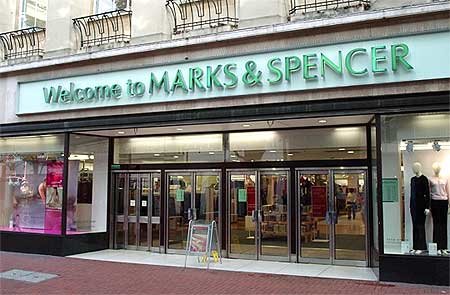The retailer, which was attacked over the quality of its underwear by Jeremy Paxman earlier this year, has teamed up with a Sri Lankan supplier to build a plant that uses 40 per cent less energy and half as much water as typical suppliers to the trade.
The first women’s underwear produced at the factory will be sold under the retailer’s Autograph and Per Una labels in about 220 M&S stores from July. More than 350 M&S stores will stock the ranges from September.
Sir Stuart Rose, the M&S chief executive, speaking to Times Online from
Sri Lanka, said: “I think this is absolutely ground-breaking.
“It’s not just a pretty building. It’s a project that establishes what we believe to be the first eco-factory in the world. It’s more than making a noise about the environment – it’s us actually doing something.”
Sir Stuart added that M&S hoped to open two similar plants later this year, one in Bangladesh for knitwear and another in Wales.
M&S has invested £200,000 in the new plant, operated by MAS Holdings. The site contains one of Sri Lanka’s biggest solar panel installations. MAS Holdings, which operates the site, has also replaced air-conditioning units with low-energy cooling systems and is capturing rainwater for use at the facility. All the power comes from green energy sources. The site contains one of Sri Lanka’s biggest solar panel installations.
M&S drew up its Plan A environmental strategy last year with 100 commitments designed to tackle climate change, waste and promote healthier lifestyles by 2012.
Environmental campaigners have welcomed the plan but questioned its breadth. They argued that it seemed impossible to achieve some targets at the same time, such as cutting food miles while also helping developing nations.
Labour Behind The Label, the workers’ campaign group, yesterday said the new eco-factory was a step in the right direction but added that M&S still had far more to do to improve working conditions at its suppliers around the world.
Martin Hearson, the group’s spokesman, said: “Marks & Spencer has done a lot on environmental issues and organic cotton but its marketing is beginning to outpace its commitments on labour rights.”
Sir Stuart refused to comment on the wages paid to the 520 staff at the new plant but said the retailer typically pays 30 per cent more than the local minimum wage.
“Some people are cyncial but you have to wear that. I’m sure we are not perfect everywhere but we are on the ground with these people doing these things,” he said. “We are going to engage our suppliers and see what can learn to keep moving forward.”
M&S is the UK’s biggest underwear retailer and it holds about 28 per cent of the lingerie market. Around a third of its clothing now comes from the Indian sub-continent.
The bra and knicker sets produced at the eco-factory will cost the same as current Autorgraph and Per Una ranges despite the extra investment at the site. M&S is also hoping to use Fairtrade cotton at the facility over the coming year.
Jeremy Paxman, the BBC Newsnight presenter, sparked a national debate when attacking the lack of support afforded by the retailer’s pants in January. Sir Stuart said: “Unless he’s started wearing lingerie, this probably isn’t for him.”











